Experimental Archaeology at Canterbury College
Archaeology has been taught at Canterbury College for the last 10 years at GCSE Level and we have also just reached the end of the first year of a GCSE 'A' Level course.
In March of 1995, for the first time for all concerned, tutor and students undertook the making and firing of 'prehistoric' pottery vessels as one of the projects.
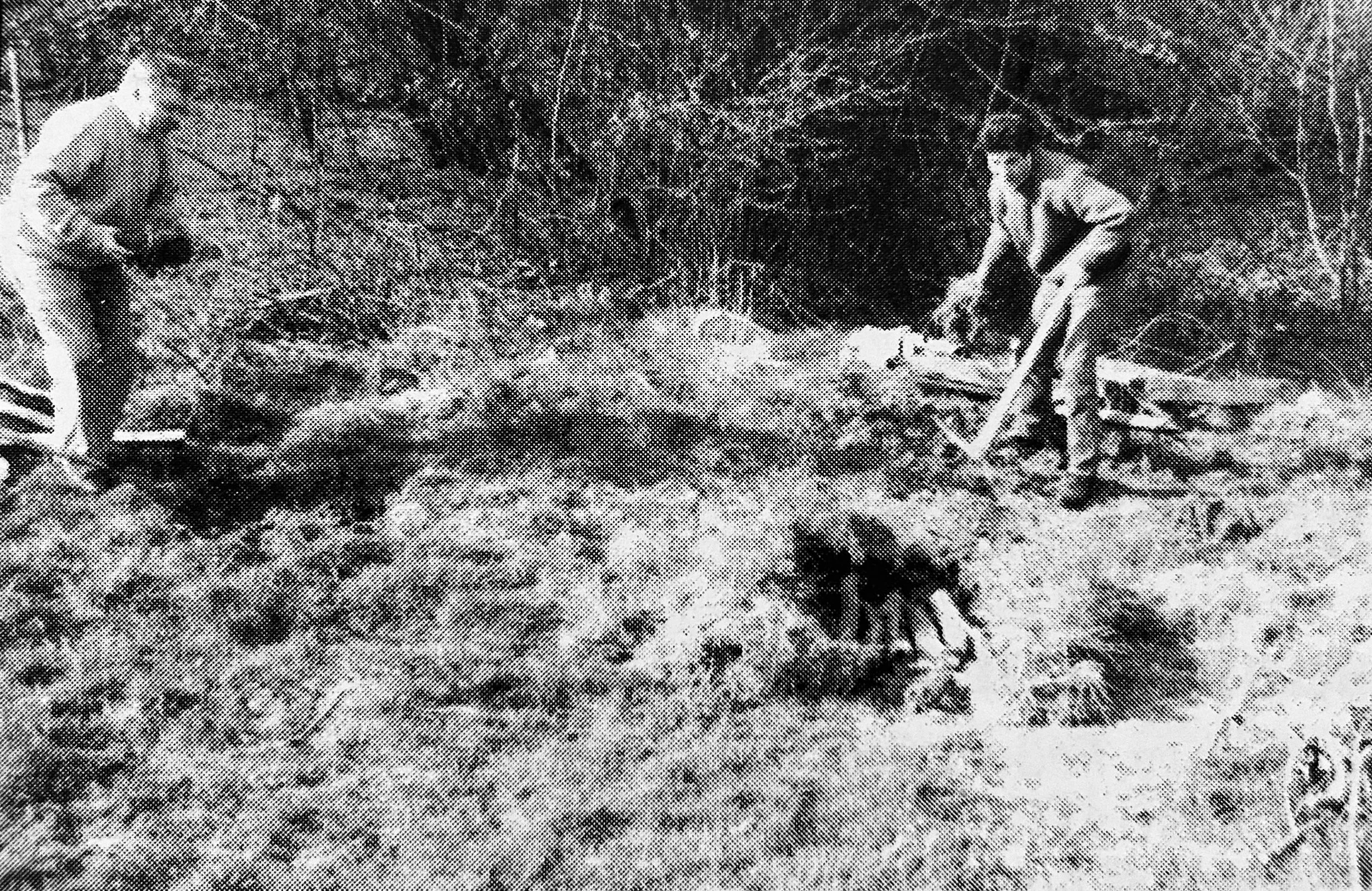 Kiln making progress.
Kiln making progress.
Experimental archaeology really began in this country with the creation of the Butser Experimental Iron Age Farm on the Sussex/Hampshire border over twenty years ago. In recent years, experimental archaeology has become increasingly popular. However, it should be remembered that it is not an attempt to recreate the past, but is merely one of the ways we attempt to understand it. By making and then firing a pottery vessel, students should be thinking of the problems involved in gathering the raw materials and what the archaeologist might find on the site of a prehistoric pottery kiln. Such problems as: Was the clay source next to the woodland? Was the woodland managed in any way, e.g. as coppice? How much of the land was managed as coppice? Will evidence of kilns survive?
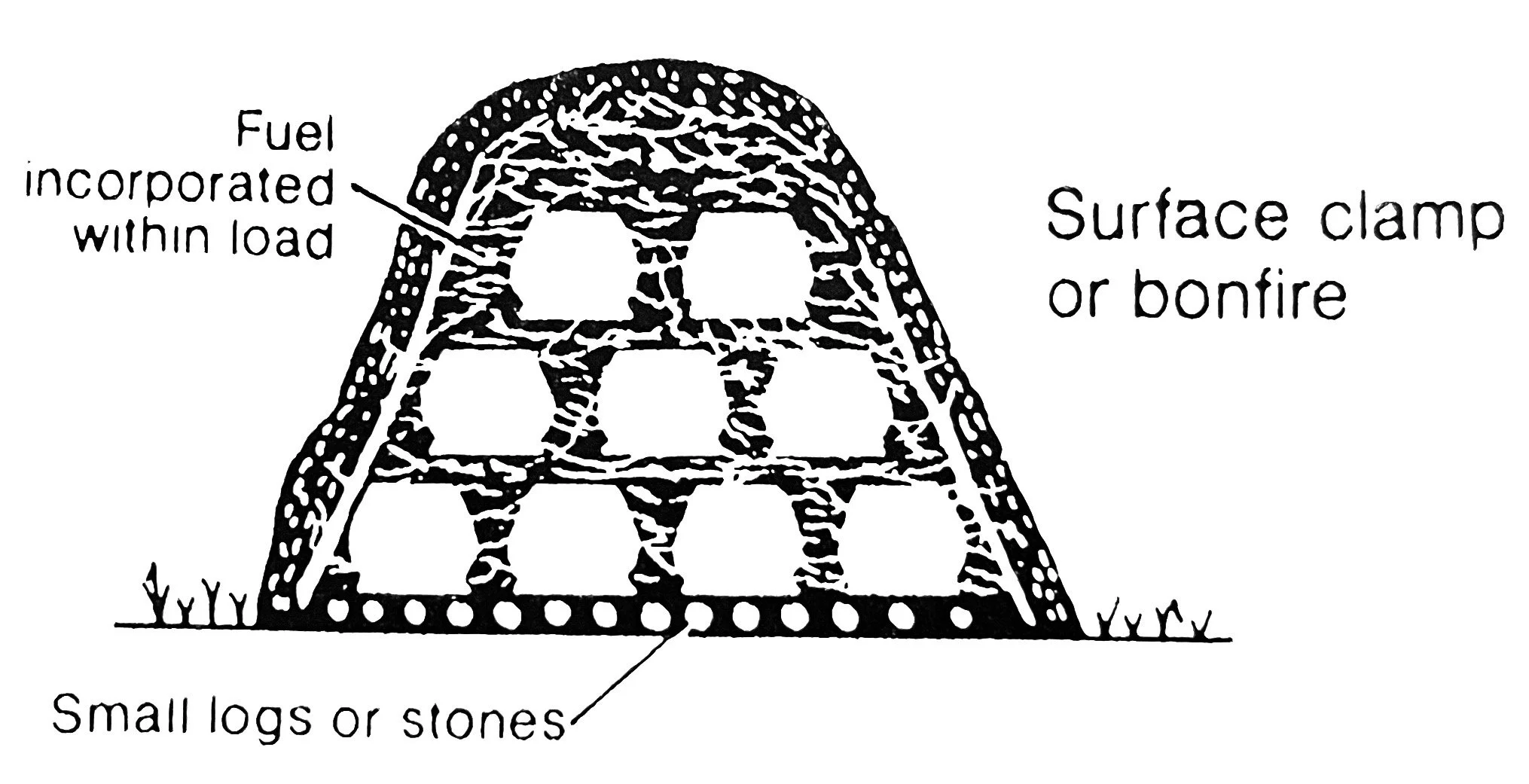 Figure 1. A simplet nonfire or clamp kiln.
Figure 1. A simplet nonfire or clamp kiln.
The pottery was made using the coiled 'sausage' method. Some of the pots were then smoothed and decorated with surface clamp or bonfire patterns using a variety of simple tools. The pots were then fired in a clamp or bonfire kiln similar to that shown in Figure 1. The main difference being that we dug a hole about six inches deep into which we placed a bed of small logs. A wall of turf was then constructed round this platform and the pottery placed on the logs. More logs were then placed around and over the pots, and then the whole was covered with turf. The fire was lit through a small vent which was then blocked, as were any gaps that appeared during the firing process.
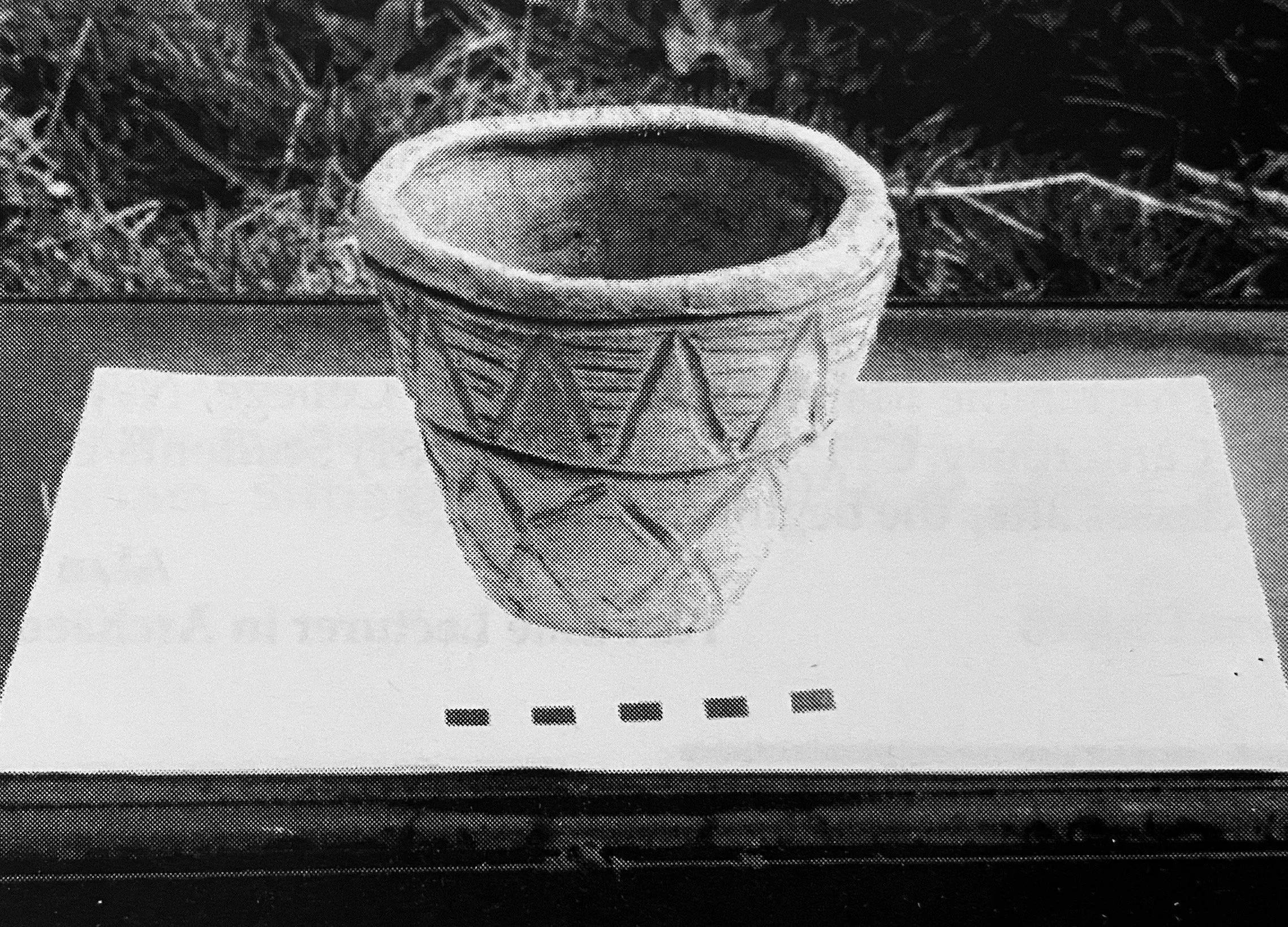 One of the "prehistoric" pots.
One of the "prehistoric" pots.
Ideally, such an experiment should be conducted over a twenty-four hour period, but safety factors dictated that the kiln had to be opened after only six. Students had been pre-warned that the pots were likely to explode during the firing process and as can be seen from the end result was not one of great aesthetic value. All the pots were broken and the vessel shown in Photo 1 had quite literally blown apart, only about 50% being recovered.
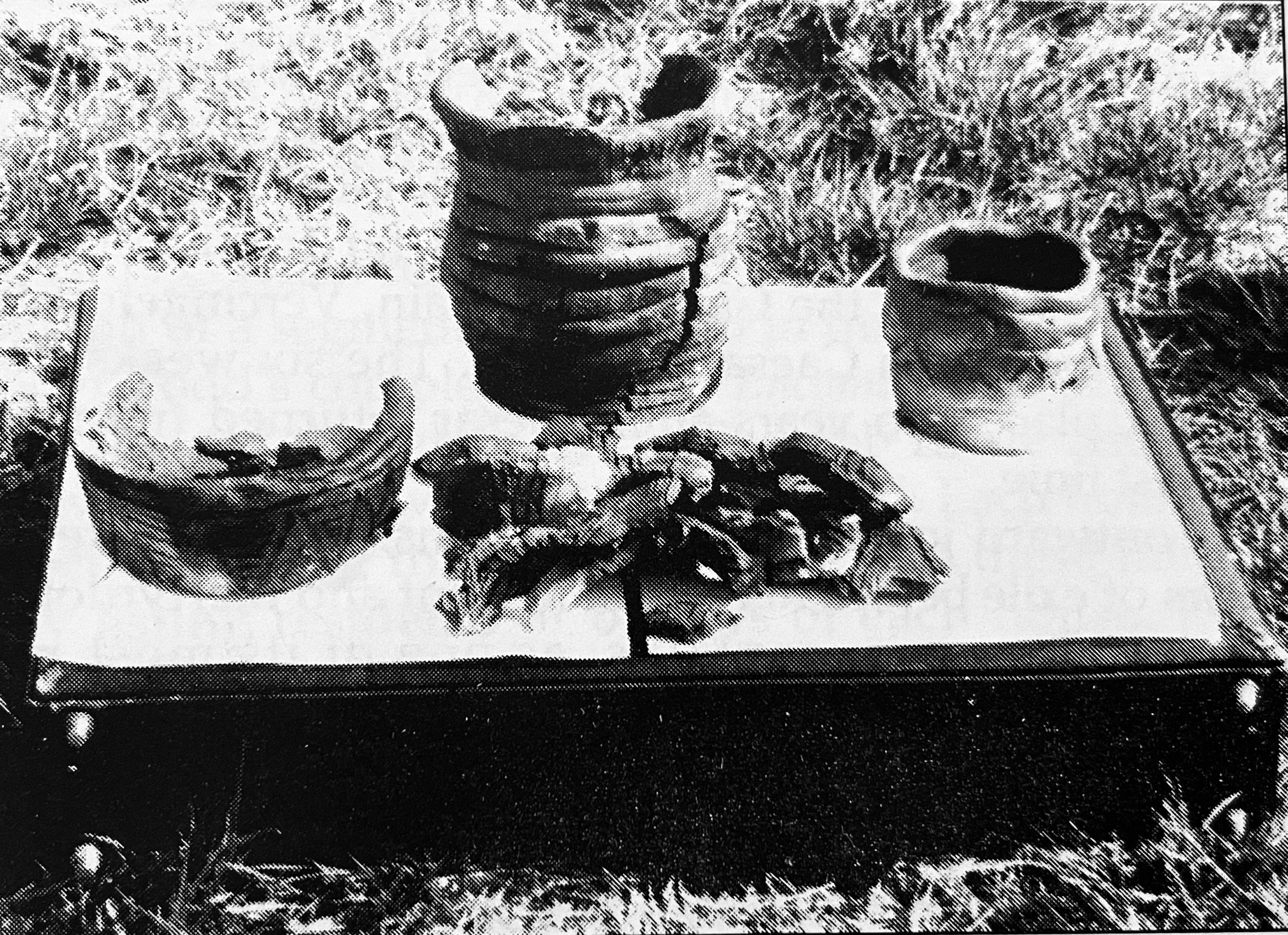 One of the "prehistoric" pots.
One of the "prehistoric" pots.
As with all experiments, the students were expected to write about what they had done, the end result, what had gone wrong and what they had learnt. Students are also expected to study the type of society which might be producing a particular type of pottery vessel. One of the periods under study being the so-called 'Beaker Period' at the Late Neolithic - Early Bronze Age transition, which for Britain can be dated to approximately 2500 to 2200 B.C.
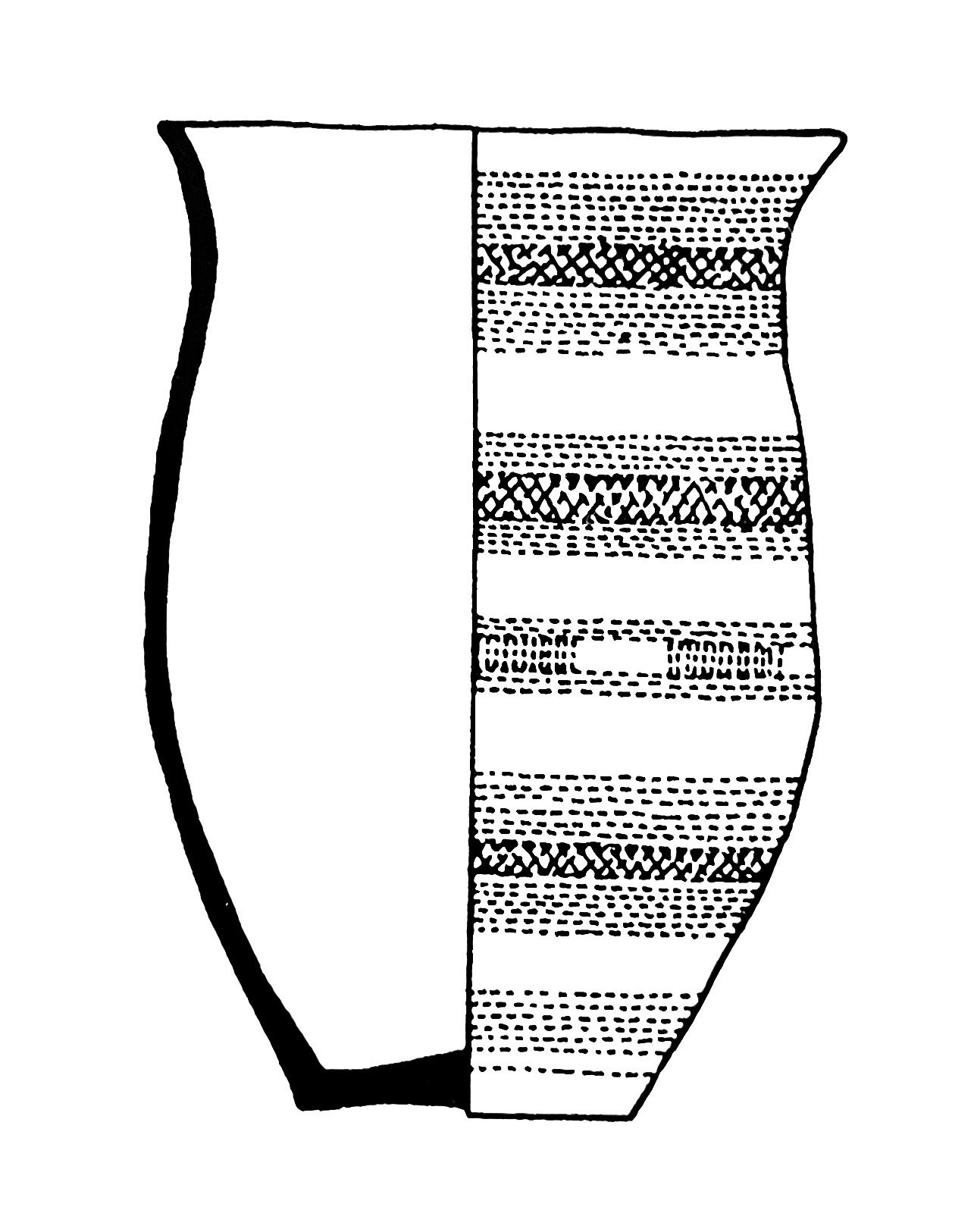 Figure 2: A Beaker pottery vessel of c.2300 B.C.
Figure 2: A Beaker pottery vessel of c.2300 B.C.
Some of the so-called 'Bell Beakers' are highly decorated (Figure 2). These pots often form part of an artefact assemblage, including early metalwork, found with burials situated under round barrows. Bell Beakers may have been used in a society which was first to use either milk or alcohol on a large scale. In the earlier part of the period, their use may have been restricted to certain members of the community. The recent excavations at Monkton in East Kent, carried out by the Canterbury Archaeological Trust and the Trust for Thanet Archaeology have substantially increased the number of artefacts from this period found in the county.
Most students who have come to study archaeology at Canterbury College, whether for evening GCSE course or the daytime GCE 'A' Level course have only had a limited knowledge of archaeology when they began. As each term progressed, their knowledge has increased and their essay work has improved. For the 'A' Level course, it is hoped that there will be a student exchange with an Italian College in future which will enable us to visit Pompeii Herculaneum. If you would like further details of these courses, contact: Wyn Jones, Programme Manager, Canterbury College, New Dover Road, Canterbury CT1 3AJ (01227 766081). Students can join these classes after the beginning of term.
Alan Ward,
Part-time Lecturer in Archaeology.